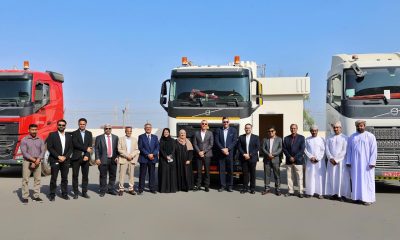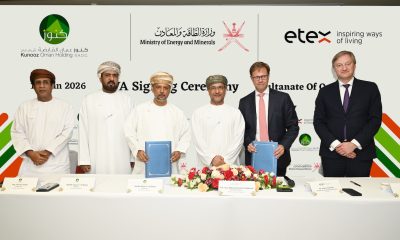Economy
MENA power sector making record investments
Major power contracts worth over $65bn were awarded throughout the MENA region between September 2014 and September 2015, according to MENA Power 2016 – the latest market intelligence report from MEED Insight.

Major power contracts worth over $65bn were awarded throughout the MENA region between September 2014 and September 2015, according to MENA Power 2016 – the latest market intelligence report from MEED Insight.
More than 22 per cent of these contracts are represented by the Gulf Cooperation Council (GCC) states. Approximately 87 percent of the total power investments have been channeled into generation projects and the remaining 13 per cent into transmission systems and distribution systems.
The report estimates that installed generating capacity across the 14 countries analyzed needs to rise by 143,221MW by 2020, an increase of about 50 per cent on the current level, to meet demand forecasts.
Author of report, Andrew Roscoe, MEED’s Power & Water Editor explained: “While several governments have taken steps to reform subsidies in an attempt to curb consumption in the wake of lower oil pricesand rising subsidy bills, there can be no let-up in the drive to build new capacity to cope with the additional demand and restore reserve margins to at least 15 per cent.”
Key factors driving up the demand for power include robust industrial growth, rise in population and increase in housing and essential infrastructure investments across various sectors. In the GCC, peak demand growth averaged 8.4 per cent in 2014, while for the entire MENA it was slightly higher at more than 9 per cent.
Looking ahead, the largest requirement for power will be in Egypt, where an estimated 27,985MW of new capacity is needed as a result of its fast growing population. While Saudi Arabia and Kuwait will require additional capacity of 20,239MW and 5,758MW respectively, the actual new build requirement will be much higher because of the need to replace or upgrade existing units on account of age.
“With some of the region’s governments facing the prospect of doubling generation capacity by 2020, a key challenge will be securing financing to cover the significant investment required,” says Roscoe. “Governments are increasingly looking to the private sector to share the burden of the billions of dollars of capital investment needed.”
As discussed in the report, faced with a shortage of readily available gas supplies, governments are turning to alternative energy to bolster capacity-building programmes.
The GCC’s first nuclear power plant is nearing completion in Abu Dhabi, with Egypt, Jordan and Saudi Arabia also planning major nuclear power programmes. Dubai and Egypt are set to join Morocco in adding coal-fired power plants to their generation mix, while Jordan is exploring oil shale as an option.
A key feature of the report is the emergence of renewable energy into the region’s power sector.
“The year 2015 will be remembered as the year renewables finally made a breakthrough on a large-scale in the MENA region,” says Roscoe.
In January 2015, Dubai propelled itself onto the global stage with the award of a contract to Saudi Arabia’s Acwa Power to develop a 200MW project at its Mohammed bin Rashid al-Maktoum Solar Park. What makes the deal of particular significance, other than its size, is that the tariff price of 5.85$cents a kWh is the lowest ever for a large-scale photovoltaic solar project in the world. Dubai quickly followed this up with a tender for an 800MW solar PV contract.
The MENA Power 2016 report provides a comprehensive country-by-country review of the regional power sector with in-depth analysis on supply and demand, projected investment levels, the role of the private sector and the search for alternative energy.
-

 News2 months ago
News2 months agoAI Security Conference 2025 Hosted by Securado Highlights the Changing Cybersecurity Landscape
-

 Insurance2 months ago
Insurance2 months agoSupporting Community Wellness: Liva Insurance Sponsors Muscat Marathon 2026 with Free Health Checkups
-

 Interviews1 month ago
Interviews1 month agoEXCLUSIVE INTERVIEW: TLS Rebranding Marks Strategic Leap Toward Innovation, Sustainability & Growth
-

 Insurance1 month ago
Insurance1 month agoLiva Insurance Supports Community Wellness Through “Experience Oman – Muscat Marathon 2026”
-

 Investment3 weeks ago
Investment3 weeks agoLalan Inaugurates Its First Overseas Manufacturing Facility, Marking Sri Lanka’s First Investment in SOHAR Freezone
-

 Banking & Finance1 month ago
Banking & Finance1 month agoA New Platform for SME Growth: Oman Arab Bank Unveils Tumouhi
-

 Construction4 weeks ago
Construction4 weeks agoInternational Heavy Equipment hosts Open Day at its Refurbished Facility in Sohar Industrial Area
-

 News3 weeks ago
News3 weeks agoKunooz Oman Holding Partners with Belgian company Etex for Local Gypsum-Based Business Development






























You must be logged in to post a comment Login